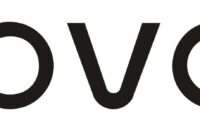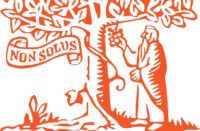HS-001 consists of clusters of purified heart muscle cells derived from induced pluripotent stem cells (iPSCs).
Clinical phase 1/2 study (LAPiS Study) will enrol 10 patients with advanced heart failure caused by ischaemic heart disease.
Tokyo, Japan and Bagsværd, Denmark, 10 February 2023 – Heartseed Inc. (Heartseed) and Novo Nordisk A/S today announced that Heartseed has successfully dosed the first patient in a phase 1/2 clinical study (LAPiS Study) with HS-001 – an investigational cell therapy for heart failure. An independent safety evaluation committee has evaluated 4-week data on the patient, who lives with advanced heart failure and has given approval for the study to continue.
Heart failure is a chronic, progressive condition in which the heart muscle is unable to pump enough blood to meet the body’s need for blood and oxygen. The condition leads to frequent hospitalisations, and more than half of people diagnosed with heart failure die within five years1. Heart failure affects more than 65 million people globally and is most commonly caused by heart conditions such as ischaemic heart disease, cardiomyopathy or high blood pressure2. The condition cannot be cured. Current therapies can slow but not halt disease progression3 and morbidity and mortality remain high4.
HS-001 is an investigational cell therapy consisting of clusters of purified heart muscle cells (cardiomyocyte spheroids) derived from induced pluripotent stem cells (iPSCs) that are designed to restore heart muscle and function in patients with advanced heart failure. In several preclinical studies iPSC-derived cardiomyocytes have been shown to improve heart function5.
The LAPiS Study is a 52-week, phase 1/2, open-label, dose-escalation study in patients with advanced heart failure caused by ischaemic heart disease, conducted at various study sites in Japan. HS-001 will be transplanted into the diseased tissue of the heart during open-heart surgery in conjunction with a planned coronary artery bypass graft procedure. The study will enrol 10 patients in two dose cohorts of 50 million and 150 million cardiomyocytes. The primary endpoint of the study is safety at 26 weeks post-transplantation, and secondary efficacy endpoints include left ventricular ejection fraction and myocardial wall motion.
“As a cardiologist, I have been working for many years to realise cardiac regeneration medicine in order to treat patients with heart failure whose heart function has deteriorated to the point where they are unable to live their daily lives. To achieve this goal, we established Heartseed and have continued our development with patient safety and benefit as our top priority,” said Keiichi Fukuda, CEO of Heartseed. “We are very pleased to announce that the first transplant of HS-001 has been successfully performed, which is a major first step in establishing a completely new treatment that I have long envisioned. I would like to express our deepest gratitude to all those who have contributed to this project.”
“Cell therapy holds the promise to offer truly disease-modifying treatments for people living with serious chronic disease. We are very pleased that our partners from Heartseed have begun clinical testing of this innovative approach to treating heart failure,” said Jacob Sten Petersen, corporate vice president of Cell Therapy R&D in Novo Nordisk. “We aim to build on Heartseed’s pioneering work in Japan and hope to bring a transformative treatment to people living with heart failure across the globe.”
About HS-001
HS-001 consists of allogeneic iPSC-derived, highly purified ventricular cardiomyocyte spheroids. By forming micro-tissue-like spheroids, the retention rate and viability of the cell transplant have been improved in preclinical studies compared to single cell suspensions. The spheroids are transplanted using a special administration needle and guide adapter developed for the administration of the spheroids into the myocardial layer of the heart.
The expected mechanism of action is coupling of the transplanted cardiomyocytes to the patient’s myocardium, thereby improving cardiac output by remuscularisation, as well as secretion of angiogenic factors to form new blood vessels around the transplant site (neovascularisation).
About the partnership
On 1 June 2021, Heartseed and Novo Nordisk announced an agreement whereby Novo Nordisk gained exclusive rights to develop, manufacture and commercialise HS-001 worldwide except in Japan. Heartseed maintained the rights to solely develop HS-001 in Japan, while Novo Nordisk gained rights to co-commercialise the product in Japan with Heartseed with 50/50 profit and cost sharing. Heartseed is eligible to receive payments totalling up to 598 million US dollars including 55 million dollars in upfront and near-term milestone payments. Heartseed is also eligible to receive tiered high single-digit to low double-digit royalties of annual net sales outside of Japan.
About Heartseed
Heartseed Inc. was founded in 2015 to develop and commercialize cardiac remuscularization therapy developed by Professor Keiichi Fukuda and his group at the Department of Cardiology, Keio University, Tokyo, Japan. Heartseed has proprietary technologies throughout the entire manufacturing process of the cardiomyocyte-cell product, including purification, cell delivery and iPSC production. Heartseed received “Minister of Science and Technology Policy Award” at Japan Venture Awards 2021 and “Ministry of Education, Culture, Sports, Science and Technology Award” at Academic Startups 2021, and “Most Promising Pipelines Awards (iPSC)” at Asia Pacific Cell & Gene Therapy Excellence Awards 2022. For more information, visit heartseed.jp, LinkedIn and YouTube.
About Novo Nordisk
Novo Nordisk is a leading global healthcare company, founded in 1923 and headquartered in Denmark. Our purpose is to drive change to defeat diabetes and other serious chronic diseases such as obesity and rare blood and endocrine disorders. We do so by pioneering scientific breakthroughs, expanding access to our medicines, and working to prevent and ultimately cure disease. Novo Nordisk employs about 54,400 people in 80 countries and markets its products in around 170 countries. For more information, visit novonordisk.com, Facebook, Twitter, LinkedIn and YouTube.
Contacts for further information
| Heartseed Inc media: | |
| Kikuo Yasui, COO +81 3 6380 1068 kikuo.yasui@heartseed.jp |
|
| Novo Nordisk media: | |
| Martin Havtorn Petersen +45 3075 5246 mhpz@novonordisk.com |
Natalia Salomao Abrahao (US) +1 848 304 1027 niaa@novonordisk.com |
| Novo Nordisk investors: | |
| Daniel Muusmann Bohsen +45 3075 2175 dabo@novonordisk.com |
Jacob Martin Wiborg Rode +45 3075 5956 jrde@novonordisk.com |
| David Heiberg Landsted +45 3077 6915 dhel@novonordisk.com |
Mark Joseph Root (US) +1 848 213 3219 mjhr@novonordisk.com |
References
1 Jones NR et al. European Journal of Heart Failure 2019 Nov; 21(11): 1306–1325 Survival of patients with chronic heart failure in the community: a systematic review and meta‐analysis – PMC (nih.gov)
2 Bragazzi NL et al. Preventive Cardiology 2021;28(15):1682-1690 Burden of heart failure and underlying causes in 195 countries and territories from 1990 to 2017 – PubMed (nih.gov)
3 McDonagh TA et al. European Heart Journal 2021 Sep 21;42(36):3599-3726 2021 ESC Guidelines for the diagnosis and treatment of acute and chronic heart failure – PubMed (nih.gov)
4 Savarese G, Lund LH. Cardiac Failure Review. 2017;03(01):7-11 Global Public Health Burden of Heart Failure – PubMed (nih.gov)
5 Kawaguchi S et al. JACC Basic Translational Science 2021 Feb 19;6(3):239-254 Intramyocardial Transplantation of Human iPS Cell-Derived Cardiac Spheroids Improves Cardiac Function in Heart Failure Animals – PubMed (nih.gov)






